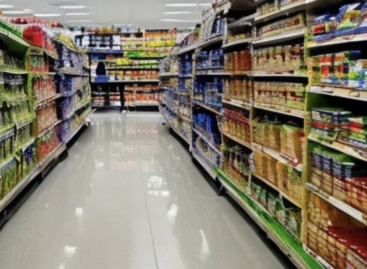Challenging times for the logistics industry
Supply chain management often involves significant risks. The constantly evolving economic and political landscapes along with a wide range of other factors often lead to unforeseen circumstances with difficult-to-predict long-term consequences for the logistics industry.

The entire sector is under tremendous stress
A series of crises in the second quarter of 2022 have prompted a reconfiguration of goods flows in virtually every industry. Here, AsstrA’s Analytics Department has compiled a list of the most important factors currently affecting distribution processes.
Inflation in the Eurozone
According to Eurostat data, the annual Harmonised Index of Consumer Prices (HICP) inflation rate in the Eurozone in June was 8.6%, up from 8.1% in May and 7.4% in April this year. Across the European Union, the inflation rate rose from 8.8% in May to 9.6% in June.
This growth has been driven primarily by rising energy and food prices. The highest annual inflation rates were recorded in Estonia at 22%, in Lithuania at 20.5%, and Latvia at 19.2%. Energy price inflation in June was 55.99%, compared to 56.80% in May and 54.11% in April. Electricity prices have risen by 49.0%.
In the near future, price pressure will remain high due to the rising costs of oil and gas as well as food. The Russian invasion of Ukraine combined with global economic recovery and supply shortages have also caused price increases.
Rising inflation is expected to further increase the price of fuel, new trucks, and fittings. According to forecasts, inflation will remain high until the end of the year.
Record-high fuel prices
The effects of inflation led to an increase in diesel prices in the first quarter and the beginning of the second quarter of 2022. The invasion of Ukraine and restrictions on oil supplies to European countries have increased price pressure. According to the European Commission, the average price of automobile diesel fuel reached 2.031 euros per liter as of June 20, up 5% percent from the first quarter 2022 and up 51% from a year earlier. The largest year-to-date increases were recorded in Germany, Italy, France, Estonia, Austria, Romania, and Lithuania.
High fuel costs are the main challenge facing the road freight market in Europe. Due to the decline in consumption of petroleum products from Russia, diesel prices are set to rise in the third quarter of 2022.
Some Eastern European countries are struggling with social tension caused by high fuel prices. Croatia has frozen fuel prices, while Slovenia has struggled with supply difficulties. Hungary and Slovenia have curbed prices, and carriers, citizens, and the ruling party have made demands on the Romanian government to follow suit. Romanian drivers have been using social media to organize protests and paralyze traffic at gas stations as fuel prices have risen 150% since the beginning of the year.
A wave of strikes in Europe
In the second week of June, the economic situation in Europe was complicated by strikes made by dockworkers at the German ports of Hamburg, Bremerhaven, Bremen, Wilhelmshaven, and Emden. The strikes were a result of wage increases not matching an inflation rate of 7.9%. The Central Association of German Port Operators (ZDS) expressed its displeasure as wage negotiations coincided with delays in supply chains in Europe and rail freight bottlenecks.
Belgium is also struggling with strikes. The Maritime Transport Workers Union (BTB-ABVV) called for a national protest in Brussels on June 20. Participants demanded wage increases and changes to existing laws.
On June 27, French truck drivers also went on strike to obtain higher wages. The organizers called on participants to block city industrial zones.
A wave of bankruptcies predicted
The invasion of Ukraine has complicated the processes for granting and extending the legal stay of Ukrainian drivers employed by Polish carriers in the EU. If the situation does not normalize by the end of the year, 100,000 international road transport workers will not have proper documentation, several thousand carriers will face bankruptcy, and the supply of Polish transport services will shrink by a third.
Also, more than 30 thousand drivers from other countries, including Belarus, are waiting for decisions on their visa extensions. Additionally, Polish Ministry of Infrastructure regulations are leading to difficulties in obtaining road transport documentation.
Registration of sensitive cargo in Romania
As of 1 July 2022, the Romanian government introduced the obligation to register high tax risk goods, i.e. alcoholic beverages. Information about the sender and receiver, place of loading and unloading, means of transport, type, quantity, and Intermodal Transport Unit (ITU) of the transported goods must be tracked in the national RO e-Transport system.
Failure to comply with the new rules will result in fines ranging from €4,000 to €25,000 that will increase carriers’ costs.
China vs. the US
Geopolitcal tensions surrounding Taiwan have grown. US leaders have indicated that they are ready to support Taiwan if Beijing uses military force against the island. The US government is also seeking closer military cooperation with South Korea and to engage the country with the Quadrilateral Security Dialogue (QUAD), a strategic security initiative of Japan, Australia, India, and the United States.
Related news
K&H: the inflation anomaly is clearly visible, but customers perceive it differently
Although inflation has slowed down a lot, according to the…
Read more >Mol Vagyonkezelő Kft. and Trevelin Holding Zrt. acquired 15 percent of Waberer’s
Mol Vagyonkezelő Kft., owned by Trevelin Holding and Mol, bought…
Read more >Shrink inflation is getting worse
Dishwashing detergent, sweets, sour cream, cottage cheese, kefir and camembert…
Read more >Related news
Euro zone inflation was 2.4 percent in April as well after March
In line with analysts’ expectations, annual inflation in the euro…
Read more >Gergely Suppan: the recession is clearly over in Hungary
The recession is clearly over in Hungary, from now on…
Read more >K&H: the inflation anomaly is clearly visible, but customers perceive it differently
Although inflation has slowed down a lot, according to the…
Read more >






